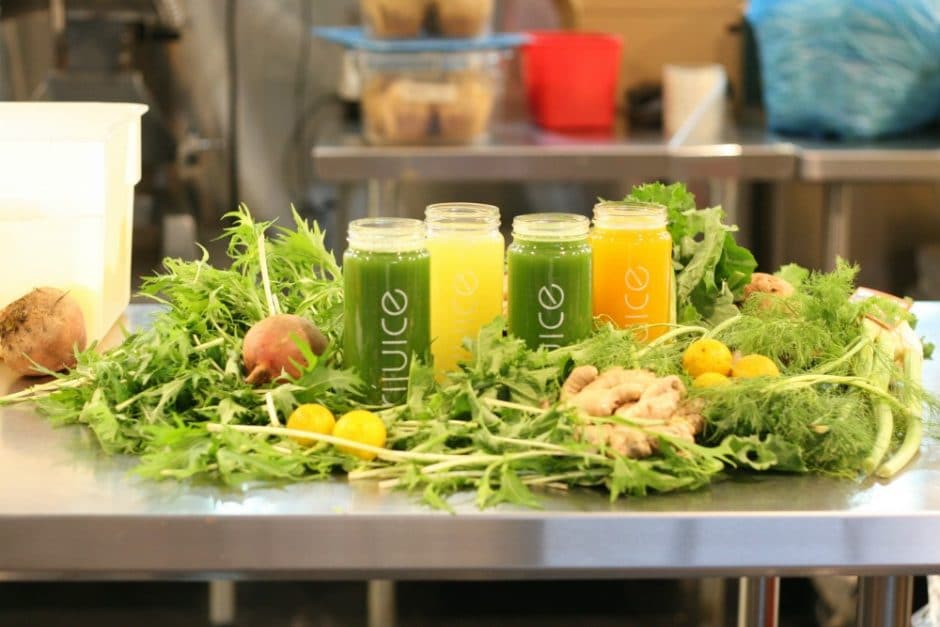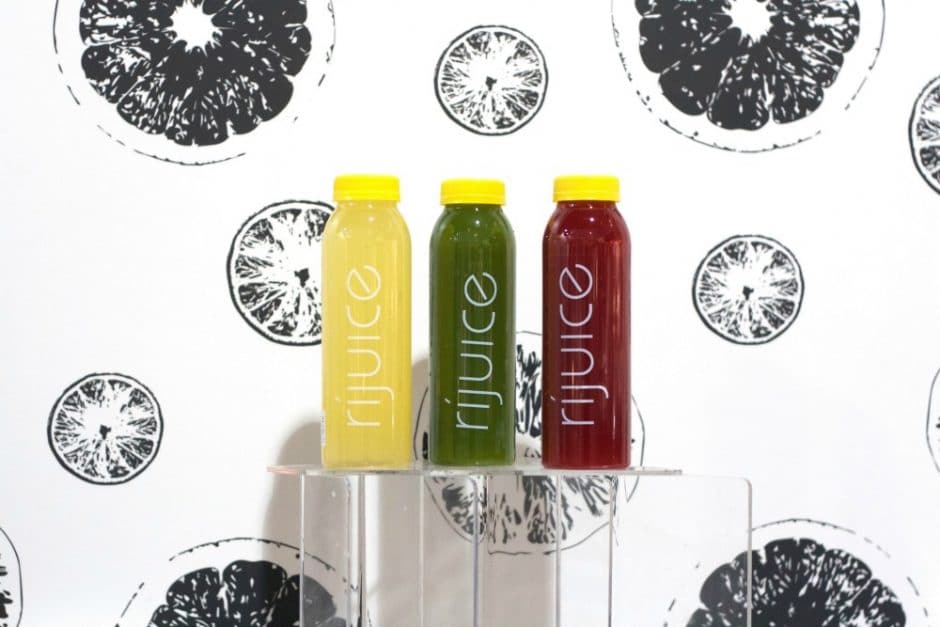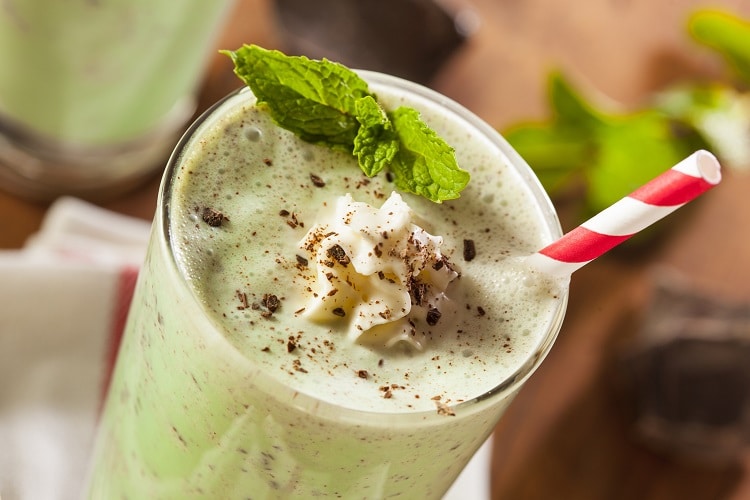by Kim Nguyen
Rijuice is celebrating its third year in a business that aims to educate and inspire people to get healthy in a natural way. This cold-pressed juice company from Lancaster, PA, continues to grow beyond Lancaster and has recently partnered with Saxbys Coffee in Philadelphia. We talked to rijuice’s Cullen Farrell about the origins of the company, the rijuice process and local collaborations.
PA Eats: When and how did rijuice start?
 Cullen Farrell: I would say it started two weeks after I quit my job in 2013. I was a gold and silver trader for a company out of Chicago. I was tired of trading commodities and wanted to get into more of a precious commodity than gold and silver, which was food. I felt being in Lancaster was the base to start a food company period. So two weeks after quitting my job, I started getting my health back, working out, going to the gym and juicing every day. Going to Lancaster Central Market and getting the ingredients and taking it home, juicing. And I knew I had to bring clean food and beverage to Lancaster.
Cullen Farrell: I would say it started two weeks after I quit my job in 2013. I was a gold and silver trader for a company out of Chicago. I was tired of trading commodities and wanted to get into more of a precious commodity than gold and silver, which was food. I felt being in Lancaster was the base to start a food company period. So two weeks after quitting my job, I started getting my health back, working out, going to the gym and juicing every day. Going to Lancaster Central Market and getting the ingredients and taking it home, juicing. And I knew I had to bring clean food and beverage to Lancaster.
There was [no local cold-pressed juice] in 2013. I came up with the name, worked on the logo and it was just me at this point. I got Kyle Ober to leave NJ to come join me. We went to the University of San Diego together. He studied architecture out there and I always loved his creative design mind. He didn’t even think twice and quit his job in NJ and moved here. His brother gave us money to buy a commercial juicer. We talked to Joe Devoy, the owner of Tellus 360, and negotiated just selling out of the mezzanine area, because they weren’t using that, and planned to launch on St. Patrick’s Day 2014. We did all green juices and mixed cocktails with them. There’s a lot of synchronicity to that. St. Patrick’s day being green, the name rijuice is Gaelic, the guys there spoke Gaelic and Tellus360 is on King Street and “ri” in Gaelic means “king.”
What is the process that goes into making your juice?
We are not a mass-producing juice. It is more artisanal because everything is hand-crafted, even though we don’t think of it as artisanal. We are very selective about ingredients. We spend hours trying to pick out what ingredients will be in the special every week. We get a lot of inspiration from the Passenger [Coffee] guys, who serve coffee and teas seriously. We know which farmers grow better kale and how it affects the flavor of our juice. [Head chef] Rafaed Pozzi has a test day where he tests flavors. We’ll spend 30 minutes to an hour just making sure it tastes good on pressing day. The ingredients get put into a hopper that gets it down to a wet pulp. We use a cold-press machine that has two hydraulic steel plates which squeeze the pulp in cheesecloth and squeeze juice out into the bottom basin.
Could you elaborate on your local farm relationships?
We’ve been running for three years and the most fun part is meeting farmers, like Tom Culton, through Instagram. Agriculture heritage here is so deep and the farmers here all know each other. Once we got involved in that scene, we just started to meet the right people who pointed us to the right direction. I grew up in Lancaster city but I didn’t even know about Culton’s farm or the orchard on Old Philadelphia Pike. I didn’t even know there were so many Amish out there selling delicious grapes on the side roads. It’s fun in that regard, exploring the abundance that Lancaster has, and I feel we are just getting started.
Why is “cold pressed” important to your standards?
The main reason you want to use [cold press] is it optimizes the nutritional contents in your juices. Plant enzymes are pretty fragile, so when you expose them to lots of heat and oxygen it breaks down much quicker. They’ll lose their color, flavor and nutrients.
Could you explain your pasteurization process?
We’re using technology called high-pressure pasteurization, but it’s not really a traditional pasteurization method. It’s a water-pressure treatment that never touches the juice itself. We bottle our juices raw and they get taken to a facility in NJ. There they have a hyperbaric water chamber our bottles get placed in, and it’s basically the same amount of pressure of the bottom of the ocean and it’s a quick jolt of pressure. That force is so intense that the bacteria cells can’t stand the level of force so the cell walls burst and it self-pasteurizes. You have to have a certain level of pH, and you’ll notice we have lemon and apple in a lot of our bottles to help the juice self-pasteurize. I’m pretty excited about this technology. I used to be against pasteurizing, but this technology allows you to not need preservatives and to share our products to more people. It gives us a 30-day shelf life.
How have you approached the issue of people thinking that healthy is expensive?
We still deal with people getting their jaw dropped. It’s a cool challenge. I think you have to educate more as to why that is. There’s a pound of produce in every bottle. If this is a path you want to take with your life, we are doing our best to provide this service for you. It’s probably cheaper than for you to buy these ingredients and it saves you time making these products. I think we care about the level of quality of what we are doing compared to $6-7 on specialty coffee and convenience store beverages. We’re doing our best now to make a more accessible product. We’re working with Stauffers of Kissel Hill, so we’re buying produce at larger volumes from them to get our prices down. We also can’t leave out the word “organic” in an expensive topic. Obviously processed foods are cheaper, but that’s because they are made with cheaper ingredients. To me, I never really understood how fake chemically made ingredients can be cheaper than ingredients that can be grown every year. I think there’s a lot of government subsidies. Especially corn, so there’s corn in everything. I hope things will change in the future. I believe they will.
If you could go back to when you were in the planning stages of creating rijuice, what would you want to tell yourself?
Slow down. I had the vision and I just wanted to go, but I was so certain and confident that it would be accepted and that it would go in the direction it has gone. I think wanting the direction and results immediately can actually be depressing to any entrepreneurs. I think many entrepreneurs run into that issue where they just jump the gun, and because they rush they create more problems and chaos for themselves. Just take your time and focus on creating exactly what you want. Sometimes in the chaos you get more out of it than you expected you would. I initially just wanted a stand at market, but the rushing process and generating excitement quickly kind of made us want to expand into stores and more places. I think in the beginning I was certain and I rushed and I carried that energy with me everywhere instead of just enjoying the process. I think the early days are the foundation, so you need to do it smoothly and calmly because you’ll have messes to clean. I feel this year has been a lot of cleaning up and bringing our energy back in.
Congratulations on three amazing years, rijuice! Learn more about rijuice and where you can find its products online.
- Photos: Rijuice






4 Comments